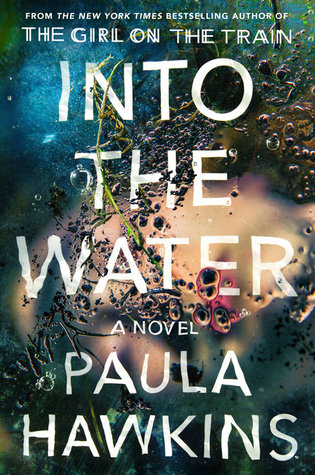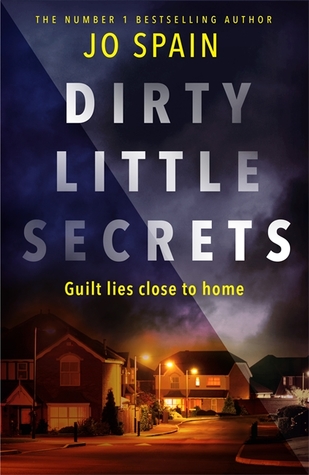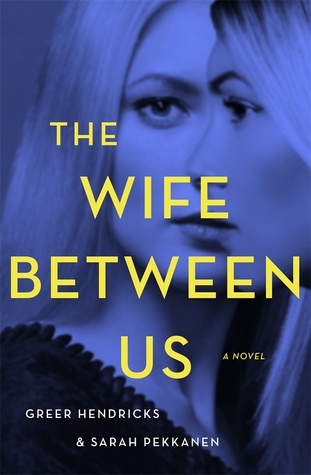“If We Were Villains”
Written by M.L. Rio
Review written by
Diana Iozzia
To write a review of a
newly favorite book is a daunting task. To read a book and decide that it is a new
favorite is equally as daunting. How do you push hundreds of other books to the
side, in favor of this? Will this always be your favorite, or will something new
be published and usurp the throne?
I read “If We Were
Villains” during a very stormy and cold October week. I did not know much about
this book, before I had borrowed it from the library and dug in. I had recorded
it down while shopping, because I knew I had to read it. Sadly, I did not
realize how much I would have liked it, or I would have bought it then on the spot.
As you begin reading “If
We Were Villains”, you start reading through our narrator, Oliver’s perspective.
Oliver is a meek, mild, and quiet young man. He is a student at a prestigious arts
college, trying to keep up with the rigorous academia he and his fellow
students have to endure. We see him as a man as well, released from prison for
a crime he might not have committed. Knowing this allows us to feel suspense
until the very moment of the murder.
This book draws very
similar comparisons to books in this genre. Book reader communities as of late
have created the genre name “dark academia”. The dark academia genre mainly
incorporates darker, thriller-like stories, taking place at boarding schools
and colleges. Similar titles among this genre are “Dead Poet’s Society”, “S.T.A.G.S.”,
“A Secret History”, “Black Chalk”, “Long Black Veil”, and more. This genre is a
personal favorite of mine.
The narratives in this
book are half-prose, half-poetry. The narrative also takes place over five acts.
The characters study art and drama program, which surrounds the work of William
Shakespeare. The influence of the Shakespearean tragedy and drama heavily affects
the themes, the narrative, and the characters of the story. When I first looked
at the description of the book, I was sold on the idea of these characters at a
drama school beginning to act more like their characters onstage. This was what
I expected, but I received more than just that. The students take place in many
plays and scenes from William Shakespeare. They participate in a cut-throat production
of “The Tragedy of Julius Caesar”, “A Midsummer’s Night Dream”, “Macbeth”, “King
Lear”, and “Romeo and Juliet”. Watching the characters as they prepare for each
performance, as they complete each performance, is like reading a play, but
imagining it flawlessly in your mind. It’s absolutely incredible to read
through this story, if you are a fan of theatre.
To continue, I also
found myself enjoying every scene. Like a fantastically well-written book,
there are no scenes that seem superfluous. There are no scenes where the only
point is a character making breakfast. We have characters in seemingly minor
scenes, but the conversations and motives are mysterious and secretive, like a Shakespearean
play. I have to admit, if you’re not familiar with the plays, it may help to do
a refresh before beginning this book. The symbolism of the Shakespeare,
reflected in the characters’ actions is well-implemented and may not be
appreciated in the same light, if you do not know much about the plays.
This is not a spoiler-free review. Please do not continue
on, if you fear any spoiled plot points.
To begin, we are
launched back into time, as Oliver navigates through a tough regime of
practicing, strict teachers, and an intriguing friend group. I began reading,
not liking Oliver as a character. Something struck me as his character being
similar to Nick Caraway’s from “The Great Gatsby”. Oliver seemed conceited and
judgmental, as he watched from the sidelines. I believe I misinterpreted this.
I quickly stopped disliking Oliver. I was right in thinking he is not the
center of attention, but this does not make him an unlikeable character.
To continue, the book
has an intensity that is absolutely gripping and draws you in, like quicksand.
The characters are well-developed, but they fall into a stereotype which feels
natural. I understand these stereotypes, because our characters begin to act like
their fictional counterparts. The characters are:
Oliver, the quiet
observer
Wren, the quiet, mousy
but mysterious character
Richard, the cruel, boisterous
bully
James, the sensitive,
caring anti-hero
Alexander, the flirty,
fun friend, with a drug problem
Filippa, the sweet,
caring, mothering friend
Meredith, the seductress
An early surprise is
that in conversation with the police officer who arrested Oliver years ago, we read
“he” in reference to the murder victim, indicating that Oliver could have
killed either Richard, James, or Alexander. Early on, I predicted that James
and Richard, two cutthroat rivals, would be involved in the murder. I also correctly
predicted that James, the anti-hero, would kill Richard. Out of secret (but not
subtle) love for James, Oliver would take responsibility for the crime. James
has an accidental violent streak at first, but we seem to watch him build
towards a more aggressive but protective hero. The rivalry between James and Richard
kick-starts, as James is cast as Macbeth, a surprise.
To be honest, one of
my favorite scenes is the Halloween performance of Macbeth. Without a shred of
doubt, my mind was transported to this lake, with wooden logs as seats, as our
characters perform some of the most vital scenes of the play. It’s intense and
uncomfortable, as we start to worry more and more when the murder will occur. Act
One eerily culminates in a game of chicken, in which Richard and James fight,
Richard holding’s James’s head under the water for too long.
In Act Two, we see Filippa
picking up Oliver from prison, after his release. She informs him that
Alexander and Meredith are doing well, eliminating Alexander from our list of possible
murder victims. This does not dismiss him as a possible murderer, however.
We launch back into
the past, to read of the horrific lead-up to “Julius Caesar”. We are absolutely
on the edge of our seats, as we see the rivalry between Richard and the other
characters continue. Richard seems more abusive towards Meredith, his
girlfriend. Richard injures Oliver and James, as they practice the
assassination scene from “Julius Caesar”. The play performance of this is
absolutely incredible, the reader fearing that there will be an accident on stage,
killing Caesar, not just figuratively.
During a cast party to
celebrate the finished run of “JC”, the characters get wildly out of hand.
Meredith and James become drunk and too flirty. Richard and Wren, who are
cousins, had fought. James and Richard begin to argue. Alexander is nowhere to
be found. Filippa is all over the place, like always. Act Two concludes with
our characters, watching Richard, lethally injured, floating in the lake. His neck
appears to be broken, and his face was smashed in.
Act Three has us wonder
if Richard can be saved. Alexander convinces the rest of them to let Richard die.
They arrange their stories for the police investigation, that they had all come
to the lakeside, and found him floating. I was quite surprised that the book
did not take a turn, where the characters buried the body and tried to hide the
evidence. The characters’ reaction does not often occur in thrillers.
It appears very clear
that James has killed Richard, but our narrator, Oliver is not sure. He is secretly
in love with James, and there might be some love requited. However, Oliver is
grasping at straws to believe that James is innocent. I absolutely love James,
so it hurts me as a reader to imagine that this poor young man could have
killed Richard. Like most Shakespearean plays, it does beg the question: is
justice served, if the murdered was quite evil? Often, William Shakespeare
poses this question. Tybalt, in “Romeo and Juliet”, is ruthless and driven by
rivalry, but does that excuse Romeo for killing him? We do not want to empathize,
when we suspect James, but we can’t help it. Tell me, would you kill someone
who could very likely kill the person you love? I don’t know that I wouldn’t.
We continue reading to
see Richard’s memorial. For a moment or two, I was suspicious that Wren could
have killed Richard. We receive little red herrings, like her dry eyes, her “tragic”
laugh. I soon shook that thought out of my mind, because it wouldn’t make sense
for her to kill her cousin, even if he was a terrible bully. Later in act three,
we also see some foreshadowing or red herrings for Wren. There is significant
mention of “Hamlet”, with a dead sparrow reference. Wren / sparrow / bird. Birds
are foreboding messengers of death; this is a red herring done correctly. Her last
name is also Stirling, which is close to the bird breed, Starling.
I have to mention that
the way the characters are portrayed. As I mentioned, we have our stereotypes.
Alexander is gay and a drug addict. However, he is not over the top in any
sense. He seems very natural and realistic. If he didn’t speak about seeing the
character, Colin, you wouldn’t think he’d be gay at all. This is refreshing, because
all too often, we have gay characters that are outrageous and offensively
stereotypical. To continue, Filippa is a kind, mothering character. We see her
carefully take care of Wren and soothe her as she mourns her cousin.
Act Three concludes as
we see the characters perform in the Christmas ball, a fantastic set of scenes.
The performance is “Romeo and Juliet”, but it is performed in the audience as
well. During the major scene of the ball at the Capulet house, where Romeo and Juliet
meet for the first time, characters dance with audience members and interact on
the ballroom floor. I imagine this scene in my mind, and it looks incredible.
This entire book would be executed phenomenally, in film form. I would even encourage
a dark mini-series.
Act Four begins. We
really see the insanity inside James now. He accidentally breaks Oliver’s nose,
during a failed combat scene for the killing scene in “King Lear”. Alexander overdoses, from the stress of the murder
and his cocaine addiction. Oliver’s jealousy and equal love for James is
completely consuming him.
Act Five shows James
absolutely insane. This is a true Shakespearean hero turned villain. He fights
with characters, practically drags Wren to bed with him. Oliver discovers a
rusted, bloodied boat hook under James’s mattress. Oliver realizes that this
weapon could be the weapon that was used for killing Richard. Out of devotion
to James and fear for James’s livelihood, Oliver admits to the crime.
Sadly, we find out
from Filippa years later, that James had killed himself six years prior to
Oliver’s release. However, his body was never found…
Conclusion
As I mentioned
earlier, this has become my new favorite book. This book is utterly incredible.
I have never read anything that I have liked as much. I can understand why readers
of this book can be a bit divided. Like “The Tragedy of Julius Caesar”, we readers
question our own morals. Would we kill out of protection and fear? Would we
protect those who we love? How do we protect them? We start sympathizing with
the villains in this book, based on our own moral codes. I think that is one of
the most fear-inducing elements of this story.

















